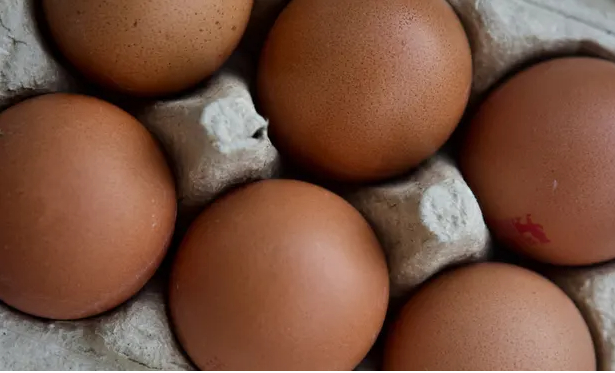November 25, 2025 | 16:04 GMT +7
November 25, 2025 | 16:04 GMT +7
Hotline: 0913.378.918
November 25, 2025 | 16:04 GMT +7
Hotline: 0913.378.918

If proposed changes are adopted in the EU and followed in the UK, eggs laid by hens that have been indoors for more than 16 weeks during avian flu outbreaks could be labelled as free-range. Photo: Geoffrey Swaine/REX/Shutterstock
Free-range egg rules in the UK could be relaxed in response to the European Union preparing to overhaul regulations after the biggest avian flu outbreak on record.
Ministers are understood to be considering a change to the rules that would mean eggs laid by hens kept in barns for months on end could be classed as free range.
Boxes of eggs are decorated with labels in French that translate as free-range is finished
Currently, eggs cannot be classed as free range if birds are indoors for more than 16 weeks. Farmers have that grace period in both the EU and UK, which means eggs can still be labelled as free-range if a government-issued housing order for birds is in place up to 16 weeks.
Subsequently, labels need to be added to packaging making it clear that those are now classified as barn eggs.
Whitehall sources told the Daily Telegraph that the Department for Environment, Food and Rural Affairs (Defra) is considering changing the regulations in order to keep farmers competitive with Europe.
In 2022, the UK experienced its largest outbreak of bird flu and experts have warned that infections could rise even higher over the winter. The outbreak has led to the death of 97 million birds globally, and 3.8 million in the UK, according to government data in November.
In October, poultry producers from as far north as Norway’s Svalbard islands to southern Portugal collectively reported almost 2,500 outbreaks of the disease since last year.
In the event that proposed changes to EU regulations are adopted, farmers in the bloc would be able to continue labelling eggs as free-range during avian flu outbreaks even if chickens had been kept indoors for more than 16 weeks.
The European Commission put forward a proposal in September, which stated “where temporary restrictions have been imposed on the basis of EU legislation, eggs may be marketed as ‘free-range’ notwithstanding that restriction”.
The proposal, which is awaiting approval by the European parliament, means eggs could be classed as free range even if hens are forced to spend months indoors due to government rulings.
In September, egg producers in the UK said it was essential that the government now followed suit to avoid British suppliers being undercut by EU imports.
Robert Gooch, chief executive of the British Free Range Egg Producers Association, said at the time: “It’s very necessary that the UK aligns with the EU, otherwise retailers will import eggs labelled as free range from housed hens in the EU in the event of an AI epidemic when there are none on the UK market.”
In past years, outbreaks of avian influenza declined with warmer weather and the end of the wild-bird migration in the autumn and winter months. But outbreaks have continued across the UK and elsewhere in Europe for far longer this year.
Last year, almost two-thirds of the 11.3bn eggs produced in the UK were free range. About 70% of the eggs sold in British supermarkets are free-range, according to market research company Kantar, almost double the level in 2014.
Defra was contacted for comment.
(The Guardian)

(VAN) Brazil's COP30 presidency pushed through a compromise climate deal on Saturday that would boost finance for poor nations coping with global warming but that omitted any mention of the fossil fuels driving it.

(VAN) Poultry farmers in the UK have been warned that they could face one of the worst winters yet for bird flu.

(VAN) Prices of main-crop paddy have risen sharply, with jasmine rice hitting 16,100 baht per tonne — the highest level in years.

(VAN) In Brazil, FAO unveiled a series of reports and initiatives showing how sustainable agrifood systems are a solution to the climate crisis.

(VAN) With names like neodymium and dysprosium, rare-earth elements sound exotic — and their perceived scarcity has only added to the mystique.

(VAN) In a new study published in Trends in Biotechnology, researchers used a gene-editing technology called CRISPR to increase a fungus's production efficiency and cut its production-related environmental impact by as much as 61%- all without adding any foreign DNA.

(VAN) A top official in Beijing’s Cop delegation says China is committed to clean energy – but US’s absence is a problem.